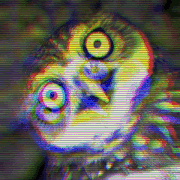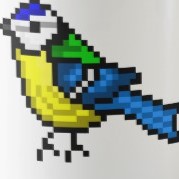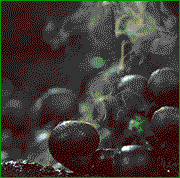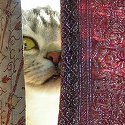|
My dog has recently began rejecting the Blue Buffalo wet and dry food. I feed dry in the AM and wet for dinner and she wont touch either. I've noticed the consistency and composition of both product lines had been irregular. Weird shapes, some packets hard or soft, gelatin cubes and other stuff. Shes thrown up twice and had diarrhea in the last week which is really weird so I'm open to and looking for a new grail inclusive line to feed
|
|
|
|

|
| # ? Apr 19, 2024 15:33 |
|
Blue Buffalo doesn't make their own foods. It's contracted out to 3rd parties. That's why their food is so inconsistent. It's also why I have shunned them.
|
|
|
|
RE: Renal diets, my elder cat (18) got diagnosed with CKD recently (as an aside, pretty litter is pretty awesome, it let us know something was wrong so we could get a diagnosis before it was a huge issue), I've currently got her on the Farmina Renal diet. So far she likes it pretty well.
|
|
|
|
owls or something posted:Blue Buffalo doesn't make their own foods. It's contracted out to 3rd parties. That's why their food is so inconsistent. It's also why I have shunned them. Oof. Never using them.
|
|
|
|
Nutritionally all their foods are below average, but with the price tag of higher quality. I'd stay away from BB simply because you can get better foods cheaper. You're paying for marketing. Covering entire walls of Petcos with their like 200 varieties is probably expensive. But yeah, the inconsistency between cans/bags doesn't fly when you got a picky cat that thinks you keep changing their food because every can is a gamble.
|
|
|
|
Bertrand Hustle posted:Is menadione bad? The OP was inconclusive, but that was six years ago, and a lot of premium foods seem to have it. Even though it's from 2011, the comments go up to late 2018, and the author has been good about correcting/updating viewpoints on other topics, so I'm guessing the conclusion still holds. That blog seems like it answers a lot of pet nutrition (and overall health) questions with realism. Stark contrast from the sensationalist pet articles that usually get top billing in Google search results. Pretty neat.
|
|
|
|
LoreOfSerpents posted:This is from an older post, but I went looking for info about menadione today after we decided to switch one of our cats' diets again, because the new food we're trialing has menadione. I found this interesting: http://skeptvet.com/Blog/2011/07/vitamin-k3-menadione-in-pet-food-is-it-safe/ The author even goes to the trouble of responding to the insane morons with civil, level-headed answers, which is more than I'd have the patience for.
|
|
|
|
All this stuff about grain free potentially being bad for dogs, I switched from Acana to Fromms. They have a bunch of flavors that aren't grain free, and my dumb dog seems to love it. I had already read up on this stuff, but when I brought her in for a checkup, they were handing out notices to everyone, warning them about grain free potentially being an issue, I thought that was nice.
|
|
|
|
I just adopted a 1yr old English Bulldog from a rescue, and she's really malnourished (she was abandoned in a field and nearly died from starvation) I also have a 14yr old black Labrador who's recently stopped eating the Blue Buffalo dry food I've been giving him (but will jump on other dry food, so it's not his age) I was thinking about switching them both to Wellness brand, since it's more readily available - what is the general consensus on that? Is there a dry-food I can use to help the Bulldog put on weight that also wont turn the Lab into a chonkster? I guess that has more to do with serving size, yeah?
|
|
|
|
Have you talked to a vet about the bulldog yet? My rescue hound dog was underweight when I got her and the answer was feed her more. I decided on two meals a day to reduce the chance of barfing but I don't know that's necessary. I'm pretty sure the reason she barfed that first day was because they fed her a whole days food immediately before putting her in my car.
|
|
|
|
Vet visit is scheduled for tomorrow - we'll see what they say. I think I'm going to move both my dogs over to Simply Nourish brand dry food. It's what my girlfriend's dogs already eat, so it's easier for everybody to be on the same food when they come over. And the ingredients look decent.
|
|
|
|
My dog keeps looking at me like I'm trying to poison him whenever I feed him. I know it sounds silly but I'm a bit worried since about half the time he decides to just not eat what I give him, or just spit out what he put in his mouth. The other half he eats it happily. He's eating 12oz of Horizon Legacy (the all salmon one) for breakfast and dinner. I've contemplated switching, but he's been doing so well otherwise I don't want to put him through a transition. He's a perfect weight for the breed mix and his energy levels are... normal. I guess I don't want to ruin a good thing but I also want him to feel like he can eat what's in front of him.
|
|
|
|
I am so glad to have found this thread and I hope y'all can help me! I am trying to find a good wet/dry food combination to help my cat lose weight. He weighed in 2 pounds heavier at the vet this morning than he was a few months ago, and it was shrugged off by the vet and vet tech with "well, that's the prednisolone. just feed him less," which I find infinitely frustrating, since he's been taking that for years and we've *lost* several pounds while on it with better diet. We've been working on weight loss for the past two years, too, so the sudden +2lbs was alarming and disheartening this morning. That's a lot!!! I started researching veterinary nutrition when I got home, played around with the calorie calculator from the Pet Nutrition Alliance and found that I'm feeding my cat appropriately in terms of kcal for weight loss for his size/goals. I found a pet nutrition clinic in my area, but their initial fee is $600+ and I can't afford that right now. Here's the facts/history: -7 y/o domestic medium hair cat -has asthma -has chronic idiopathic rhinitis -has feline herpes -prone to URIs -weighed in at 16.2 pounds today -takes 2.5 mg prednisolone/day -takes 2 puffs of Flovent inhaler/day -takes 1tsp lysine supplement/day -not interested in playing unless its for food (so when he's breathing well, we throw dry food and chase it around) Currently eating: - 1/4c dry food (right now Canidae's limited ingredient chicken) -1/2 can natural balance limited ingredient chicken or duck - 1 tbsp dry food or 1tsp treats for snack/playtime = ~190 kcal/day - limited ingredient diets were suggested in case asthma had any food-related allergy associations. I'm not convinced it's necessary, to be honest Hoping for: -a better quality dry food that both my cats can eat (other cat will only tolerate a tablespoon mixed in with her wet food, so not sure how much I need to consider her with that) -a wet food that isn't pate, since pate + congestion gives him a peanut butter mouth effect I hope I explained everything well. If I can answer any more questions to help folks get a better picture, please let me know. We need help! I want my guy to be at a healthier weight so he can have as long a life as possible with all his health problems.
|
|
|
|
mick ohio posted:I am so glad to have found this thread and I hope y'all can help me! 1. Buy a baby scale. 2. Make sure he isn't stealing food. Never leave him unattended with access to the other cat's food. If you leave him unattended, I guarantee that he's stealing her food. 3. Be very specific how you measure his daily food. If you feed him multiple times throughout the day, or if someone else helps feed him, measure out his daily portion into a separate jar and make sure you only feed him from that jar. Don't just reach for the 1/4 scoop and try to eyeball amounts. It doesn't matter if online sources are telling you that you're feeding him the right amount. If he's gaining weight like that, he isn't being fed appropriately for his situation, because you only have two levers: food and exercise. Very sedentary cats don't need to eat as much to maintain their weight. I have one very petite, hyperactive cat who weighs 8 pounds and eats more calories than my lethargic 15-pound monster. It makes no sense when you look at the numbers, but their weight is good this way. A baby scale is pretty much mandatory for any serious pet weight loss at home. I use something like this one but you can find cheap baby scales through thrift stores, garage sales, and mom Facebook groups. Don't use an adult bathroom scale, because it won't be accurate enough. A baby scale will let you track your cat's weight and make adjustments week by week. My cats all change their food/exercise habits seasonally, so I end up having to modify their food portions a few times a year to maintain their weight. My goal for my two overweight cats was to get them to lose 1/4 pound per month just by gradually scaling back their food. That's intentionally a pretty slow pace for weight loss because I wanted to take it easy on them. One cat was overweight at 17 pounds (goal: 15 pounds) and another cat was overweight at 13 pounds (goal: 10 pounds). It took a long time. Even now that their weight is under control, I weigh them every 1-2 weeks. As for what you wanted to hear, about food recommendations... unfortunately, I think you should consult a different vet about that, if you don't trust your current vet's recommendation. Food allergies aren't very common in cats in most regions, and they usually manifest as skin/hair problems near the face, or (less often) as problems in the GI tract. Your situation is pretty specialized if your vet suspects a food allergy related to asthma. I can offer some general info, though. Limited ingredient diets are supposed to be strictly followed for 2-3 months to see if symptoms improve, but the diet becomes unreliable if you have multiple cats who eat different diets but still groom each other/share the same water dishes/have different treats/etc. So if you want to know if a limited ingredient diet is helping, you have to monitor the results closely over that time period, and you probably need to switch all cats in the house. Also, although food allergies are relatively uncommon for cats, the most common food allergen is the protein source. Most cat owners who use a limited ingredient diet can swap in another food that has the same protein source, as long as that's the only protein source. The same rules apply, though, because you'll need to monitor over another 2-3 months to see if conditions improve/worsen, in case your cat is actually sensitive to something other than the protein source.
|
|
|
|
LoreOfSerpents posted:Suggestions: Thank you so much for this! The food is strictly monitored and there's no free-feeding in the house at all. They're fed in separate rooms with the door closed until both cats are done (if the second cat hasn't finished, her food is put into a drawer or in the fridge). The only common / shared item is water bowls. The new cat just joined us a month ago, so that helps with having a better read on the LID, since we'd been doing that for two years prior. The asthma itself is well controlled-- he's had maybe 5 attacks in the last 9 months. The LID was recommended at a time when his asthma wasn't well controlled, but it was put in place along with a bunch of other things all at once. In that time, he's had the occasional non-limited food, and I haven't noticed any change in asthma/congestion with food differences. I guess the weight gain is worth a second opinion from another vet? He'd been consistently losing weight for a long time, then suddenly gained it all back. Why wasn't that concerning at all to the vet we're seeing now? I should also mention, we've seen maybe 5 different vets in the last few years due to moves and needing more advanced care sometimes. I have a file folder of all his records since adoption and feel like I've been diligent in providing his records to any new vets we see. I'd love to stay at the practice we're at now because its a minute drive from the house and he doesn't do well in cars. :/ Anyway, sounds like more active weight monitoring with a baby scale and gradually decreasing food is the best way forward for right now. Please let me know if I'm missing anything & thanks again!
|
|
|
|
mick ohio posted:Thank you so much for this! The food is strictly monitored and there's no free-feeding in the house at all. They're fed in separate rooms with the door closed until both cats are done (if the second cat hasn't finished, her food is put into a drawer or in the fridge). The only common / shared item is water bowls. The new cat just joined us a month ago, so that helps with having a better read on the LID, since we'd been doing that for two years prior. The asthma itself is well controlled-- he's had maybe 5 attacks in the last 9 months. The LID was recommended at a time when his asthma wasn't well controlled, but it was put in place along with a bunch of other things all at once. In that time, he's had the occasional non-limited food, and I haven't noticed any change in asthma/congestion with food differences. The pet food industry is a total crapshoot, so if you do decide to try a new food, just be brave and try a brand/texture you're comfortable with. The rules I follow: - Most of the diet should be wet food, if possible (especially for male cats) - Fish ideally shouldn't be the main protein (the fishing industry is just super lovely right now) - Don't put too much stock in gimmicky marketing (those gimmicks haven't been around long enough to prove long-term efficacy in cat diets anyway) That's it. I gave up on ruling out brands with lovely ingredients and instead focus on whether the cat likes it and how their teeth/fur/intestines/kidneys react on it. Lately, I tend to lean more on Purina foods because they've been around forever and they process their own food, but I also buy Solid Gold and Wellness. For the weight gain, taking him to another vet is your call. Increased appetite is a pretty common side effect of prednisolone in cats, so it's not that your vet is wrong, but if you're sure nothing has changed about his food amounts or his activity level in the last few months, gaining two pounds out of the blue is pretty odd. I mean, it's technically possible that he grew a crazy tumor in that time, but if that were the case, you'd almost certainly be seeing other side effects. Still, you could have him X-rayed to see if anything incredibly weird is going on. My best guess though is that his activity level decreased without you noticing, and because you didn't have a way to weigh him at home, you kept feeding him the same amount, so he just stockpiled the extra calories. There's a really interesting neuroscience thread where the OP talked about the difficulty in weight loss from a neuroscientist's perspective - the OP theorized that it seems like your brain has some sort of pre-set idea about what it wants your weight to be, and if you try reducing your calories or increasing your activity level to lose weight, the brain seems like it pulls opposite levers, trying to keep you at its own idea of the ideal weight. Weight management is apparently a big mystery to brain experts, too. At the end of the day, if you trust your vet, stick with them. If you don't trust your vet, find a new one.
|
|
|
|
This is probably a dumb question but most people seem to agree that wet food is generally better for cats. That said dry kibble always seems like it has a much higher % of protein according to the ingredients (which I would think is a good thing and would make it better for them, even the most premium canned foods have like 11% protein where as some poo poo dry kibble is like 30%. What’s the reason for that difference?
|
|
|
|
TrixR4kids posted:This is probably a dumb question but most people seem to agree that wet food is generally better for cats. That said dry kibble always seems like it has a much higher % of protein according to the ingredients (which I would think is a good thing and would make it better for them, even the most premium canned foods have like 11% protein where as some poo poo dry kibble is like 30%. What’s the reason for that difference? Not a dumb question at all. This is actually so strange in the pet food industry that the FDA tells pet owners to be extra careful when comparing wet and dry foods. Basically, you can't compare wet and dry food "guaranteed analysis" labels at all. From the FDA site: quote:The weights of ingredients are determined as they are added in the formulation, including their inherent water content. This latter fact is important when evaluating relative quantity claims, especially when ingredients of different moisture contents are compared. Note that it talks about "dry matter basis." This is the key when comparing kibble to wet food - but it's not how "guaranteed analysis" labels work, as this section points out: quote:Guarantees are declared on an "as fed" or "as is" basis, that is, the amounts present in the product as it is found in the can or bag. This doesn't have much bearing when the guarantees of two products of similar moisture content are compared (for example, a dry dog food versus another dry dog food). However, when comparing the guaranteed analyses between dry and canned products, one will note that the levels of crude protein and most other nutrients are much lower for the canned product. This can be explained by looking at the relative moisture contents. Canned foods typically contain 75-78% moisture, whereas dry foods contain only 10-12% moisture. To make meaningful comparisons of nutrient levels between a canned and dry product, they should be expressed on the same moisture basis. So if you want to compare wet food to dry food, you have to calculate the "dry matter basis" instead. The FDA page talks through how to do that calculation, too. When you calculate the dry matter basis, usually a wet food will have higher protein than a dry food. The guaranteed analysis just makes it look different because so much of what's in a wet food can is moisture content, not nutrient ingredient content. All that said, I don't know of any studies that have shown healthy cats do objectively better on wet food diets than dry food diets over time. (Granted, I haven't kept up with pet food studies in the last few years.) Wet food can obviously make a big difference when you start seeing hydration problems like constipation or urinary issues, which is why I feed my elderly cats mostly wet food, but as far as I'm aware, no one has proven that an otherwise healthy cat will have a worse life if fed dry food. Consequently, wet food tends to get recommended as a precaution, not a proven best practice.
|
|
|
|
My dog has been losing weight recently, I don't have my scale in my new place yet and I don't think I would have much success holding her for the 20 seconds or so it would take to weigh her, so I'm not sure how much. Best guess she's about 50 pounds when her normal healthy weight is 55-60 (bloodhound/heeler mix). She's about 10 years old, currently eating the Nutro senior chicken dry food. I'm not sure if she's not getting some nutrients she needs or what, because she's not eating any less of it. I also caught her chewing on a pinecone outside a while back which seems concerning if she's going after something with zero nutritional value (aside from my old food wrappers out of the trash hey-o). What would be a more nutrient-dense food in the same price bracket as the Nutro/Nature's Recipe? As much as I would like to, I can't afford the stuff that's $50 for a 20 pound bag. Less on-topic, is there anything I should be checking on at home before taking her to the vet if she doesn't start gaining weight again? She's got a wart that's growing back, but when they cut it off last time they tested it and it was benign. They also did an ultrasound or something like that (involved shaving her belly is all I know) at the same time, that was about 4 months ago, came back clean. Can stress cause a dog to lose weight? My wife and I just split up and I'm wondering if she could be stressed because she's only seeing my wife once a week or so rather than all day every day.
|
|
|
|
LoreOfSerpents posted:Not a dumb question at all. This is actually so strange in the pet food industry that the FDA tells pet owners to be extra careful when comparing wet and dry foods. Basically, you can't compare wet and dry food "guaranteed analysis" labels at all.
|
|
|
|
Hi PI- mostly lurker here, but I noticed that someone mentioned DCM in dogs a page or so back. I was actually coming to ask about it, so - I have a two year old (46 pound) Pitbull/Greyhound mix and I feed him grain free, so I'm a bit concerned, but I also know that I'm a worrywort. The brand is Meridian and the ingredients Do contain potatoes and chickpeas, so I'm a bit worried. Would it be alright if I took a photo of the ingredients list? It's a dry food but I was fairly sure it was at least moderate quality. I just want him to be healthy. He's a good boy.  Edit: they have a website! This is what he's eating right now. Meridian Daybreak Bucky being an exhibitionist as a bonus : 
Freakbox fucked around with this message at 22:49 on Sep 12, 2019 |
|
|
|
22 Eargesplitten posted:My dog has been losing weight recently, I don't have my scale in my new place yet and I don't think I would have much success holding her for the 20 seconds or so it would take to weigh her, so I'm not sure how much. Best guess she's about 50 pounds when her normal healthy weight is 55-60 (bloodhound/heeler mix). She's about 10 years old, currently eating the Nutro senior chicken dry food. I'm not sure if she's not getting some nutrients she needs or what, because she's not eating any less of it. I also caught her chewing on a pinecone outside a while back which seems concerning if she's going after something with zero nutritional value (aside from my old food wrappers out of the trash hey-o). Freakbox posted:Hi PI- mostly lurker here, but I noticed that someone mentioned DCM in dogs a page or so back. I was actually coming to ask about it, so - The FDA's most recent report is available here: https://www.fda.gov/animal-veterinary/news-events/fda-investigation-potential-link-between-certain-diets-and-canine-dilated-cardiomyopathy That page also has a link to a PDF compiling a few years' worth of DCM-related complaints the FDA has received, which you can search for various pet foods. If changing foods is something you're interested in, this is a good resource for what to look for: https://vetnutrition.tufts.edu/2016/12/questions-you-should-be-asking-about-your-pets-food/ If you want to stick with your current food, you should watch him for signs of heart issues: fatigue, coughing, fainting, less energy on walks, etc., and keep up with routine vet visits where your vet can monitor for more subtle problems like heart murmurs.
|
|
|
|
Been feeding my dog grain free for awhile and just got an email that Taste of the Wild has some new Ancient Grain varieties coming out. While I haven't had any concerns about my dog's health, I think I'll get a bag to see how she likes it. 
|
|
|
|
LoreOfSerpents posted:This is a few days old and I can't speak with confidence about dog food options, but in general, any unexplained weight loss in any animal is grounds for a vet consultation. Weight loss is one of the earliest symptoms you get for lots of problems in the GI tract. Thanks. Firefox ate my post, but basically I got her a dog food that's 430-450kcal/cup, she's been gaining weight, no other GI symptoms, no signs of worms or parasites in her stool, she should still be up on her shots, need to confirm. Went to the vet only a few months ago and got a clean bill of health (loving $800 bill of health thanks to a tumor removal that turned out to be benign Any recommendations for foods in the 400+ calorie/cup range? This one only comes in 4lb bags which makes it pretty expensive. Purina Pro has a few options but I haven't been feeding her anything with corn or gluten for 4-5 years so I feel weird about going to that. I mean, aside from all the human food she gets into at every opportunity.
|
|
|
|
I also felt weird switching to a grain inclusive food but I switched my old dog to purina bright mind (an old dog specific food) and he put on a ton of muscle that I'd been struggling to put back on him for years with various grain free foods. He looks just as good now at almost 12 as he did as a young dog. No one at the vet's office can believe his age. The large breed formula is 450 calories per cup, the corn/wheat/soy free formula is 423 calories per cup. I liked that it really helped him put on muscle instead of just making him old man tubby.
|
|
|
|
That's the exact one I was looking at because my dog is 10. I need to stop being such a depressed lazy sadbrains for her to get the exercise to put that muscle on, but I'll get that.
|
|
|
|
Yeah, honestly I don't know anything about dog food since I just have cats, but I am waaaaay past the point of caring about gimmick ingredients and fad diets from the legions of boutique pet food companies that have sprung up in the last 10-20 years. Purina has been in the pet food business for over 100 years. They manufacture their own food, and they employ more veterinarians than your average vet clinic. After all of the bullshit that's happened to pet food over the last 20 years, I think you could do worse. I think even the huge melamine scandal from 10 years ago only impacted one of Purina's product lines. That said, I'll echo the stuff I normally say with cats: I've used Purina, Wellness, and Solid Gold. They've all been fine for me, but all three companies have had recalls, and I check for new recalls every week just in case. I actively avoid Blue Buffalo and any company that's been in business for less time than a cat's lifespan. This article is the best advice I've seen on how to navigate pet food selection now: https://vetnutrition.tufts.edu/2016/12/questions-you-should-be-asking-about-your-pets-food/
|
|
|
|
For what it's worth, I had a vet several years ago that actually was a consulting vet to Science Diet and he openly admitted that there were better options for healthy animals—Prescription Diet was the only reason he even participated. That aside, I'm currently feeding Wellness Core Indoor to my three cats. They're doing well on it (feeding non-indoor variants turns them into little cat sausages, regardless of portion control), but I recently picked up a bag of the RawRev variant as it was on sale due to cosmetic bag damage. They've been all about the freeze-dried turkey liver inside. Are there any real nutritional advantages to feeding freeze-dried raw meats, though? Is it worth the premium/better to just mix in freeze-dried raw from other manufacturers?
|
|
|
|
I'd avoid supplementing a prepared diet with significant amounts of liver on a regular basis, as that could lead to too much Vitamin A. An occasional treat is fine, and using other meats should be okay, but there isn't any nutritional advantage to doing so.
|
|
|
|
One of my little good boy cats, Sweaters, has been having issues with impacted anal glands lately and has been scooting. They’ve been expressed twice but seem to get impacted again soon quickly. My vet suggested changes to his diet. I was wondering if anyone had any suggestions in regards to high fiber quality and affordable cat food?
SeANMcBAY fucked around with this message at 07:51 on Sep 25, 2019 |
|
|
|
SeANMcBAY posted:One of my little good boy cats, Sweaters, has been having issues with impacted anal glands lately and has been scooting. They’ve been expressed twice but seem to get impacted again soon quickly. My vet suggested changes to his diet. I was wondering if anyone had any suggestions in regards to high fiber quality and affordable cat food? I'm asking because dietary changes might not fix it if it's recurring because of an infection or disease. If, on the other hand, your cat is just failing to poop normally (which is how anal glands are stimulated naturally), then dietary changes could make a big difference. If your cat is having problems pooping normally, you might need to try wet foods. These are not typically considered "affordable," but increasing moisture intake can be really helpful for regulating cat pooping habits, depending on what the problem is. Whether you go with wet or dry food, to determine the fiber content, you're actually going to need to contact the pet food companies directly (unless you can find it listed on their website). Specifically what you're looking for is going to be called the "typical analysis" of "total dietary fiber." The company should also be willing to provide you with the "crude fiber" content (also found in a typical analysis), from which you can roughly determine the soluble vs insoluble fiber in that recipe (very roughly speaking, soluble fiber in a recipe = total dietary fiber - crude fiber, which is fine as an estimate although it isn't quite exact for reasons you probably don't care about). None of this info is provided in a meaningful way in the "guaranteed analysis" you see on pet food labels. Pet food labels are not useful for determining fiber content. You need to get the typical analysis instead. Fiber requirements can be highly variable between individuals, so it's hard for anyone to recommend a specific diet for fiber. Your vet or a veterinary nutritionist would be the most qualified to recommend a particular soluble/insoluble ratio for your cat based on his health profile. In the absence of that kind of specific advice, I'd suggest getting the typical analysis of fiber in the food you're currently using, because then you'll know what baseline to use to find a higher fiber food. Then you can contact the manufacturers of other foods that you're interested in, and compare that fiber. I mean, I can tell you that insoluble fiber is what bulks up stool, and bulkier stool might put more pressure on the anal glands while pooping to keep them operating normally. But if your cat is constipated, adding more bulk to his stool could just make that problem worse, and you instead want to find the right balance of soluble/insoluble fiber to keep him pooping regularly. So it's really going to depend on your cat.
|
|
|
|
He’s not overweight at all. He’s a healthy weight according to the vet. He’s also pooping fine as far as I can tell. His glands are not infected yet. She thinks he may also be allergic to something but suggest diet changes first before going that route. Thank you for the information.
|
|
|
|
SeANMcBAY posted:He’s not overweight at all. He’s a healthy weight according to the vet. He’s also pooping fine as far as I can tell. His glands are not infected yet. She thinks he may also be allergic to something but suggest diet changes first before going that route. Thank you for the information. Healthy pooping habits for a cat: - Bowel movement every 1-2 days - Shape/consistency is a recognizable "2" on the cat fecal scoring chart (fair warning, if you google that it is exactly what you'd expect to see) - Color is plain brown, not too dark or too light If your vet is concerned about allergies, I have two more suggestions: - Whatever food you try, stick to common proteins like chicken for now. This will make it easier to try a novel protein diet later if you do need to go down the limited ingredient route. - Talk to a veterinarian who specializes in allergies. If you're in the US, you may have an animal allergy clinic nearby, or your vet may be able to order a consultation from an allergist at a veterinary university who will look over the cat's symptoms and records without you having to go there yourself. Talking to a specialist in allergy cases can be helpful because limited ingredient diets suck A LOT, especially if you have multiple cats, and you really only want to go down that route if you absolutely have to. Also because allergists are way more familiar with symptoms of allergies. I mean, if my vet looked at a cat who had normal pooping habits but kept getting impacted anal glands and she said he might be allergic to something, I'd think she was high. [ Edit: I should clarify, dermatological symptoms are very commonly associated with allergies in cats, including food allergies, so that would also explain a vet's concern with allergies. I'm just assuming that's not relevant in your case since your cat tax photo shows a very happy cat face. ] LoreOfSerpents fucked around with this message at 00:24 on Sep 26, 2019 |
|
|
|
jeaves posted:I was thinking about switching them both to Wellness brand, since it's more readily available - what is the general consensus on that? I was actually looking over this thread with a similar question. I've been using Wellness (various wet varieties) for years now with no real issues. Was just curious to see if the thread consensus had a new top brand in mind or anything like that.
|
|
|
|
litany of gulps posted:I was actually looking over this thread with a similar question. I've been using Wellness (various wet varieties) for years now with no real issues. Was just curious to see if the thread consensus had a new top brand in mind or anything like that. Our cat couldn't handle the gelling agent they switched to last year, despite us gradually transitioning to the new formula. We switched her to Merrick (it didn't have the binder she couldn't tolerate) but she was doing fine on Wellness wet before the change. I wish she was still able to tolerate Wellness because it was much cheaper!
|
|
|
|
So regarding the FDA article I am confused. When they say 12 cases have been potentially linked to Orijen, do they mean 12 cases in the whole of the USA? I have always fed my 2 year old Japanese Spitz the original orijen biscuits and started our new pup on the large breed orijen biscuits. I live in New Zealand so choices are super limited but I am really reluctant to change if only 12 cases have been linked to Orijen.
|
|
|
|
So I've got a ravenous little guy who needs grub. We just got him back after he was very poorly treated by another person. So, he's down a lot of weigh. We want to help him put on some weight but he also is highly at risk of becoming a fatty as he'll just eat and eat and eat forever if we let him. We're up for getting him whatever is best. Checking the OP, I know that some of the mentioned brands have since fallen from grace. Is there a general "best" wet food to give him? While we want to get him good stuff price is something we need to be somewhat mindful of as we dropped a very silly amount of money at the vet getting him back to fighting form.
|
|
|
|
RingDetective posted:So I've got a ravenous little guy who needs grub. We just got him back after he was very poorly treated by another person. So, he's down a lot of weigh. We want to help him put on some weight but he also is highly at risk of becoming a fatty as he'll just eat and eat and eat forever if we let him. What species is the little guy?
|
|
|
|
So my roommate's cat (a Siberian) apparently needs to shed a pound or so, and I know very little about cats. He gets Orijen which is apparently pretty good for a dry food (at least the OP endorses it?), and I don't think it's feasible to get him wet food or use one of those rotating-tray-of-compartments-that-you-measure-yourself feeders. How accurate are the automatic feeders which claim to dispense a certain volume of kibble at programmed times? Are any of them accurate enough to be used for caloric control?
|
|
|
|

|
| # ? Apr 19, 2024 15:33 |
|
Reiterpallasch posted:So my roommate's cat (a Siberian) apparently needs to shed a pound or so, and I know very little about cats. He gets Orijen which is apparently pretty good for a dry food (at least the OP endorses it?), and I don't think it's feasible to get him wet food or use one of those rotating-tray-of-compartments-that-you-measure-yourself feeders. How accurate are the automatic feeders which claim to dispense a certain volume of kibble at programmed times? Are any of them accurate enough to be used for caloric control? https://superfeederstore.com/ Many years ago now, I used one of these, and it seemed to be accurate. It was good for feeding many small portions during the day. That kept the cat from getting hungry after a few hours (otherwise she'd eat plastic) but also from eating too much. My complaint would be that you set the portion size by turning a tiny little screw on a potentiometer, so it takes a bit of trial and error to get it right. I see there are more choices than there used to be on Amazon. Was using a battery operated PetSafe one before and it kind of sucked and broke, but I don't remember exactly how.
|
|
|






































